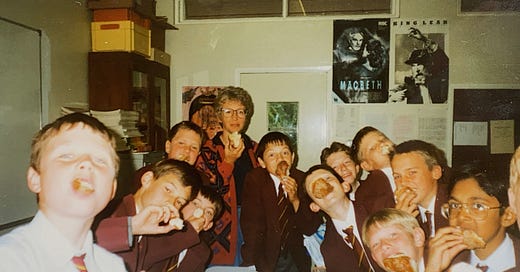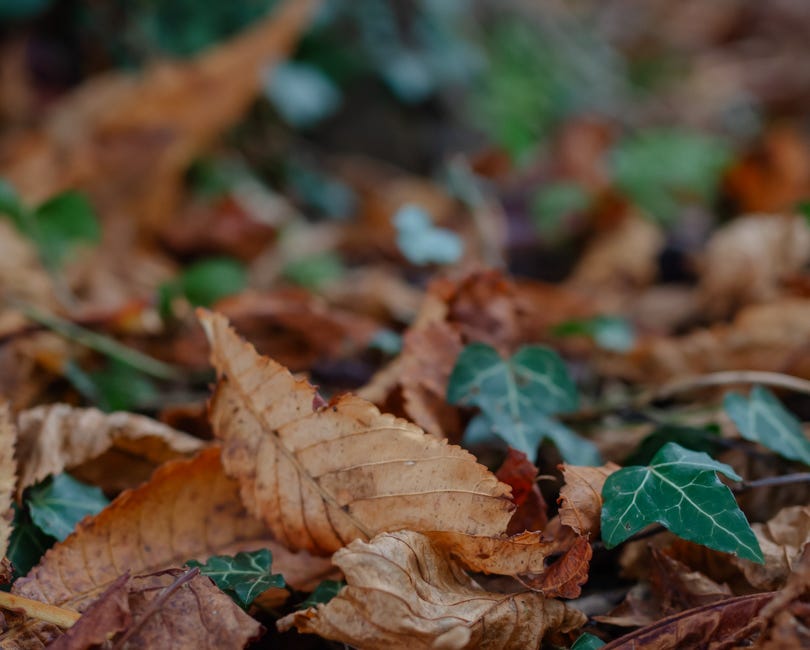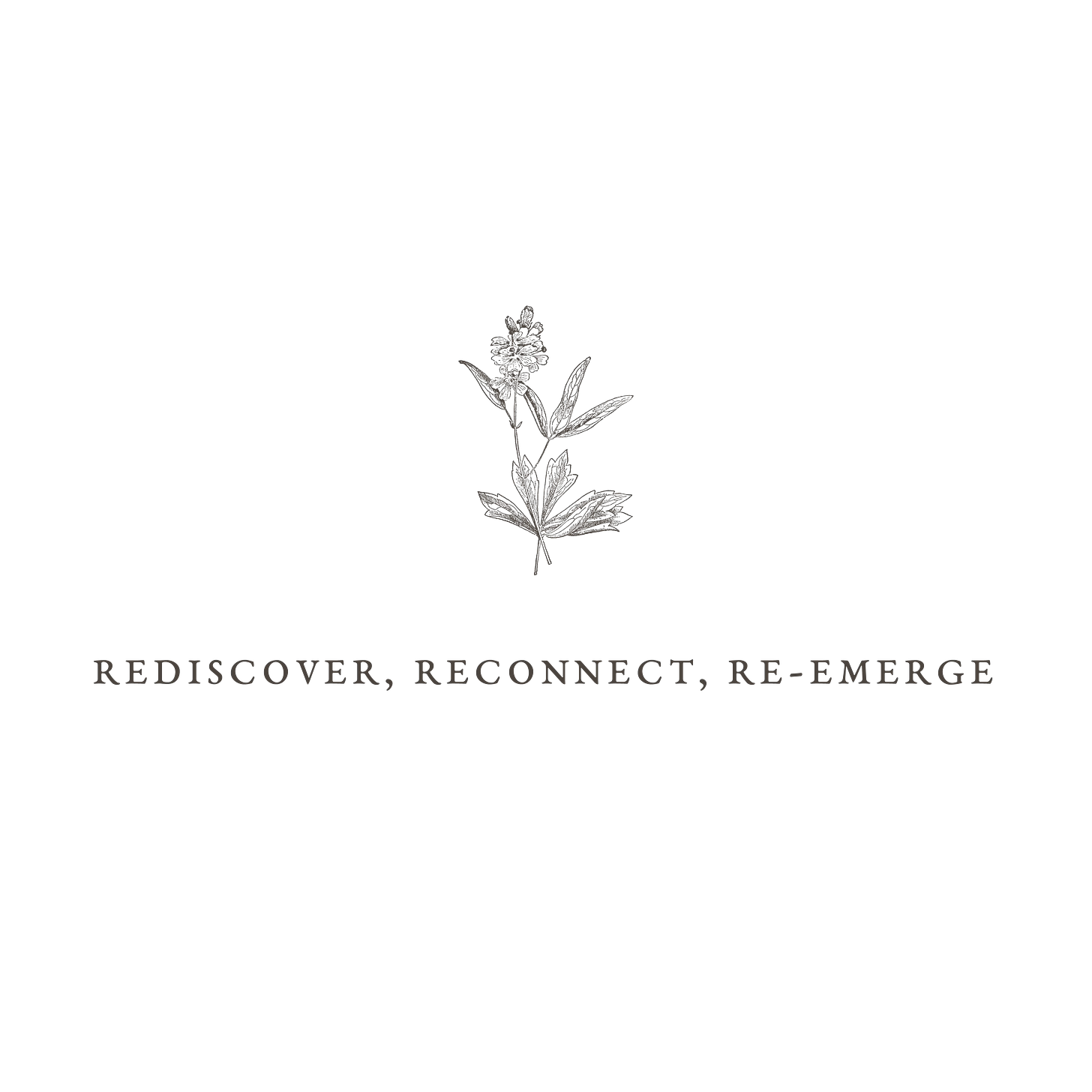Reflections on a Simple Past | 07. Nurture and Nourish
In the nourishment and nurturing of our own creative souls, I believe that we can give of our truly authentic selves in a way which can provide nurture and fulfilment for others.
In this series, I look back at some of the people, places and things which have so richly influenced and inspired my love of all things simple.
Do you ever wonder if you try too hard? I seems an impossible question; is it ever possible to try too hard?
I love writing. I’ve always loved putting pen to paper, and I’ve written previously about how cathartic it has been to put that out into the world here on Rediscover · Reconnect · Re-Emerge. I also know that there are times when I try too hard. Sometimes, I publish a post, or look back at an earlier one, and realise that enjoyable as it was, I tried too hard. They’re not horrific, but somehow, the writing feels stilted, that in a strange way, I was trying to write in a way which might please others. This is, of course, entirely unintentional, but I know it and feel it when I see it. Perhaps you do too in your own work?
I’ve spent over 20 years teaching flute, piano and singing. As the years have gone on, I frequently find myself saying to my students “don’t try too hard”. They look a little bemused at this suggestion; as I said above, why wouldn’t we want to try our hardest? When it comes to the physical playing of an instrument or singing, tension is our worst enemy, in both body and mind. Sometimes, I see that in my writing too. Flautists blow too hard, singers breathe too much, and pianists claw desperately at the keys. I find myself saying “let the instrument do what it’s designed to do”. It’s taken me a long time to realise this in my own playing too.
A few weeks ago,
wrote a beautiful post How to Fall in Love with Writing:She gives probably the best advice in just four words:
‘Write for you first’
It sounds so simple, yet even I feel the tension building when I think about this. Am I selfish writing only for me? Will my readers like it if I write for me first?
I had a mixed relationship with school, particularly as I grew older. I always tried hard, and always sought to do my best, but somehow, I was annoyingly average. Not especially good enough to receive the extra support needed to excel, but not bad enough to receive the extra support needed to succeed. If there were three sets, I was in the middle one. When I look back at my school years, particularly those secondary years between the ages of 11 and 18, I realise that in reality, the education system wasn’t really for me. I was too much of an all-rounder, with many and varied interests. I didn’t want to settle on only a handful of subjects, but of course, as I grew older, that was exactly what was required of me.
If there was going to be a teacher’s pet, it was probably me. My nickname was ‘boffin’. I don’t think I was especially clever, but I did work hard, and I always did what was asked of me to the best of my ability. But in retrospect, there were times when I probably tried harder than I needed to. I always went the extra mile, something which was nearly always appreciated by my teachers, though didn’t necessarily make me very popular. Many of the pieces of work and projects where I went the extra mile were done first and foremost, for me, for my own enjoyment and satisfaction. They were often creative, and frequently explored a topic from an unexpected angle.
I did them for me first.
This Rediscover · Reconnect · Re-Emerge post is free to read; however, to dig deeper and access the full range of posts and resources, you can become a paid subscriber for just £4 a month, or £40 a year. Paid subscriptions help me to continue creating new content, affording me time and space to explore new ideas, and allow me to continue supporting others to do the same. Every paid subscription has a big impact 🙏
When I was in Year 7, we were asked to do a project about Judaism, the term’s topic in RE. Most people produced (under duress) a few sheets of paper (much printed from Microsoft Encata - do you remember that?), with plenty of pictures and as little writing as possible. What do you think I did? Well, I baked and wrote about Challah, a braided loaf of bread, often eaten on ceremonial Jewish occasions. It made me quite popular as much of the lessons were spent eating the bread. I was required to recreate it on several occasions, my RE teacher writing:
‘You have worked so hard and given us all such fun eating your bread; mere merit cards do not seem enough!’
‘So much fun’, and it was. It never felt like work to me, it was creative, fun, and clearly brought enjoyment to others.
When I reached Year 9, it was a history project on some aspect of the Second World War. Whilst others printed out photos of aeroplanes and maps, I went to the local record office to research the history of the school during the war. I don’t know whether my teachers loved my sense of exploration, or whether they found it infinitely annoying. Nevertheless I had a wonderful time, and won the Lower School History prize for it. Looking back, I once again realise that I did it first and foremost for me, and it was from there that the enjoyment came. I never set out to win a prize, it was merely a happy bonus.
I suppose that in retrospect, I enjoyed the things at school where I could work independently, where I could put my own spin on a particular topic. The problem was, of course, that the majority of school wasn’t really like that. I felt stifled, a feeling which only increased as the years went by. I felt forced to choose, to narrow down my options, to try and keep the careers teacher happy. It didn’t really matter what I enjoyed for me, I had to come up with a career choice so that I could work in my chosen profession until I reached retirement age. That was the expectation. But perhaps that’s a story for another time…
School wasn’t geared towards the individual, it was geared towards compliance, to acceptance of the societal ‘norms’. If you’ve read more of what I’ve written here on Substack, you can probably see why I was never truly going to fit in. But all that said, it had its moments, and some enjoyable ones at that.
‘Write for you first’
Even now, I often have to remind myself of this. I think that we all need this reminder from time to time. “Don’t try too hard” I have to periodically tell myself. It’s not selfish, it’s nourishing. In the nourishment and nurturing of our own creative souls, whether that be as writers, artists or musicians, I believe that we can give of our truly authentic selves in a way which can provide nurture and fulfilment for others.
Nearly 30 years on, baking bread is nourishment for my soul, an almost daily pastime, as is spending happy hours researching at the local record office. All these things were there to see, and as much as school tried to stifle them, they have remained with me, to rediscover and reconnect with. I enjoy them for me first, and through that enjoyment, that nourishment of my own creative soul, I hope that you may too enjoy some of what I write and share here.
In case you missed it, the autumn edition of A Seasonal Notebook is now out and it’s packed full of things to enjoy through the whole season:
A Seasonal Notebook | Autumn 2024
As we approach each new season, we do so with expectation, with hope; sometimes with excitement, sometimes with trepidation. The cycle of the seasons offers us a deep and mindful way of rooting our own seasons of life within the reassurance and continuity of the natural world. Each season, I invite you to open the pages of my seasonal notebook, a place to reflect, to set intentions, and above all, to reconnect with the rhythms of nature. Together we will journey through the seasons, learning from the past, and embracing each one in a way which can offer us with a firmer foundation for the present.
If you’re not already doing so, I’d love you to follow me over on Instagram. You can also visit the A Life More Creative website, where you can find out more about My Story, and read articles from my online Journal. Subscribe on Substack to receive new posts and to support my work:











Beautifully written and really interesting to me, because I was sort of the opposite at school! My report cards always said “she has so much potential, if only she’d just put in more effort…” and I always beat myself up about my inability to get my butt into gear and try harder! Aren’t we humans interesting? It seems the grass is always greener on the other side…
Fabulous storytelling David, not too much at all. For years I've talked about getting back into flute playing and flautist friends have been popping up in my life lately. I'm taking this as a sign I should follow this feeling ✨